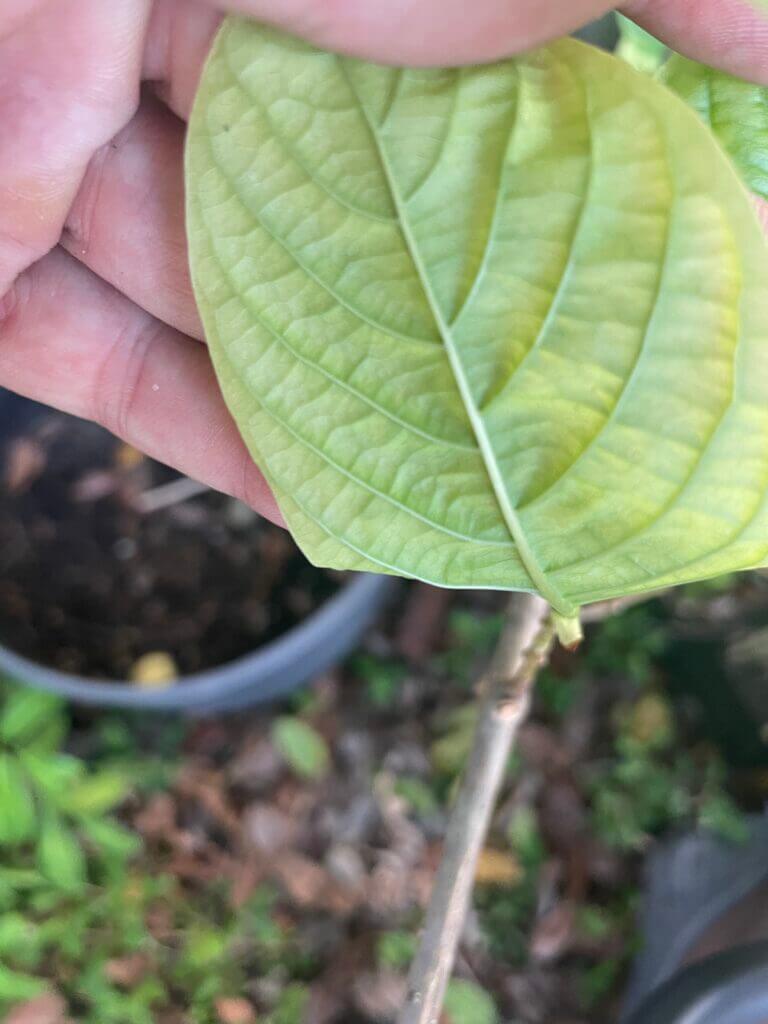Is Kratom Legal?
Kratom, scientifically known as Mitragyna speciosa, is a tropical tree native to Southeast Asia whose leaves have been used for centuries for their medicinal properties. The plant has gained popularity worldwide, particularly for its potential benefits in pain management, mood enhancement, and opioid withdrawal support. However, kratom’s legality is a complex and contentious issue, varying significantly across different countries and even within regions of the same country. This blog delves into the legal status of kratom in the USA and other parts of the world, providing a comprehensive overview of its legal landscape.

Kratom Legality in the USA
Is Kratom Legal? Federal Level
In the United States, kratom’s legality is not uniformly regulated at the federal level. The Drug Enforcement Administration (DEA) has considered classifying kratom as a Schedule I substance, which would place it alongside drugs like heroin and LSD, but such efforts have faced substantial public opposition. As of now, kratom remains legal at the federal level, but its status is subject to change based on ongoing research and policy reviews.
Is Kratom Legal? State Level
The legality of kratom varies widely from state to state. Some states have embraced its potential benefits, while others have imposed strict regulations or outright bans. Here is a breakdown of kratom’s status across various states:
- States Where Kratom is Legal: Kratom is legal for sale and use in states such as California (except in San Diego), Florida (except in Sarasota County), and New York.
- States with Age Restrictions: Some states, including Arizona, Georgia, and Utah, have implemented age restrictions, allowing kratom to be sold only to individuals over 18 or 21 years old.
- States with Bans or Restrictions: States like Alabama, Arkansas, Indiana, Rhode Island, Vermont, and Wisconsin have banned kratom. Additionally, some states have imposed county or municipal bans despite statewide legality.
Is Kratom Legal? Local Regulations
In addition to state laws, local municipalities may have their regulations regarding kratom. For example, although kratom is legal in Illinois, the city of Jerseyville has banned its sale and possession. Consumers and vendors must stay informed about local ordinances to ensure compliance.

Kratom Legality Around the World
Kratom’s legal status varies significantly across the globe, with some countries embracing its use and others imposing strict prohibitions. Here is an overview of kratom’s legality in various regions:
Is Kratom Legal? Southeast Asia
Given its origins, Southeast Asia has a unique relationship with kratom. However, the legal status in its native region is not always favorable.
- Thailand: Kratom was historically banned in Thailand under the Kratom Act 2486, enacted in 1943. However, in recent years, Thailand has legalized kratom for medicinal purposes, recognizing its potential benefits.
- Malaysia: Kratom is classified as a controlled substance in Malaysia, and its sale and possession are illegal.
- Indonesia: Indonesia is one of the largest exporters of kratom, and it remains legal to cultivate and sell domestically. However, there have been discussions about imposing regulations or bans in the future.
Is Kratom Legal? North America
- Canada: Kratom is legal in Canada but is subject to certain restrictions. It is illegal to sell kratom for human consumption, but it can be sold for other purposes, such as research.
- Mexico: Kratom is legal in Mexico, with no significant restrictions on its sale or use.
Is Kratom Legal? Europe
Kratom’s legal status in Europe varies by country, with some nations allowing its use and others imposing strict bans.
- United Kingdom: Kratom was classified as a Class C drug under the Psychoactive Substances Act 2016, making its sale, production, and supply illegal.
- Germany: Kratom is not classified as a controlled substance in Germany, but its sale for human consumption is regulated.
- France: Kratom is illegal in France, and its sale and possession are prohibited.
- Italy: Kratom is classified as a Schedule I substance in Italy, making it illegal to sell or possess.
Is Kratom Legal? Australia and New Zealand
- Australia: Kratom is classified as a Schedule 9 substance in Australia, meaning it is prohibited except for medical or scientific research.
- New Zealand: Kratom is classified as a controlled drug, and its import, sale, and possession are illegal without a prescription.
Is Kratom Legal? Africa
- South Africa: Kratom is legal in South Africa, with no significant restrictions on its sale or use.
Factors Influencing Kratom Legality
Several factors contribute to the varying legal status of kratom worldwide:
Public Perception and Advocacy
Public perception and advocacy play a crucial role in shaping kratom’s legal status. In countries where kratom is seen as a beneficial plant with medicinal properties, there is often greater public support for its legalization. Advocacy groups and scientific research can influence policymakers to reconsider existing bans or regulations.
Health and Safety Concerns
Concerns about health and safety have led some countries to impose strict regulations or bans on kratom. Reports of adverse effects, potential for addiction, and lack of standardized dosages contribute to these concerns. Countries with stringent drug policies are more likely to classify kratom as a controlled substance.
Economic Interests
Economic interests also impact kratom’s legal status. In countries like Indonesia, where kratom cultivation and export contribute significantly to the economy, there is more incentive to keep it legal. Conversely, countries with strong pharmaceutical industries may face pressure to ban kratom to protect market interests.
Kratom Legality by State in the USA
Kratom, a tropical tree native to Southeast Asia, has garnered both support and opposition in the United States. The legal status of kratom varies significantly across states, with some embracing its potential benefits and others imposing bans or restrictions. Here is a detailed list of kratom legality on a state-by-state basis:

States Where Kratom is Legal
- Alaska: Kratom is legal without restrictions.
- Arizona: Kratom is legal for those over 18 years old.
- California: Kratom is legal except in San Diego.
- Colorado: Kratom is legal, but the city of Denver prohibits its sale for human consumption.
- Connecticut: Kratom is legal without restrictions.
- Delaware: Kratom is legal without restrictions.
- Florida: Kratom is legal except in Sarasota County.
- Georgia: Kratom is legal for those over 18 years old.
- Hawaii: Kratom is legal without restrictions.
- Idaho: Kratom is legal without restrictions.
- Illinois: Kratom is legal for those over 18 years old, except in Jerseyville.
- Iowa: Kratom is legal without restrictions.
- Kansas: Kratom is legal without restrictions.
- Kentucky: Kratom is legal without restrictions.
- Louisiana: Kratom is legal without restrictions.
- Maine: Kratom is legal without restrictions.
- Maryland: Kratom is legal without restrictions.
- Massachusetts: Kratom is legal without restrictions.
- Michigan: Kratom is legal without restrictions.
- Minnesota: Kratom is legal without restrictions.
- Mississippi: Kratom is legal except in several counties and cities.
- Missouri: Kratom is legal without restrictions.
- Montana: Kratom is legal without restrictions.
- Nebraska: Kratom is legal without restrictions.
- Nevada: Kratom is legal for those over 18 years old.
- New Hampshire: Kratom is legal for those over 18 years old.
- New Jersey: Kratom is legal without restrictions.
- New Mexico: Kratom is legal without restrictions.
- New York: Kratom is legal without restrictions.
- North Carolina: Kratom is legal for those over 18 years old.
- North Dakota: Kratom is legal without restrictions.
- Ohio: Kratom is legal without restrictions.
- Oklahoma: Kratom is legal without restrictions.
- Oregon: Kratom is legal without restrictions.
- Pennsylvania: Kratom is legal without restrictions.
- South Carolina: Kratom is legal without restrictions.
- South Dakota: Kratom is legal without restrictions.
- Tennessee: Kratom is legal for those over 21 years old.
- Texas: Kratom is legal without restrictions.
- Utah: Kratom is legal for those over 18 years old.
- Virginia: Kratom is legal without restrictions.
- Washington: Kratom is legal without restrictions.
- West Virginia: Kratom is legal without restrictions.
- Wyoming: Kratom is legal without restrictions.
States with Bans or Restrictions
- Alabama: Kratom is banned, classified as a Schedule I controlled substance.
- Arkansas: Kratom is banned, classified as a Schedule I controlled substance.
- Indiana: Kratom is banned, classified as a Schedule I controlled substance.
- Rhode Island: Kratom is banned, classified as a Schedule I controlled substance.
- Vermont: Kratom is banned, classified as a Schedule I controlled substance.
- Wisconsin: Kratom is banned, classified as a Schedule I controlled substance.
States with Local Restrictions
- California: Kratom is legal except in San Diego.
- Colorado: Kratom is legal, but the city of Denver prohibits its sale for human consumption.
- Florida: Kratom is legal except in Sarasota County.
- Illinois: Kratom is legal for those over 18 years old, except in Jerseyville.
- Mississippi: Kratom is legal except in several counties and cities.
States Considering Legislation. Is Kratom Legal?
Several states are considering legislation to regulate or ban kratom. These states often experience ongoing debates and proposed bills that could affect kratom’s legal status. Consumers in these states should stay informed about local legislative developments to understand potential changes.
Is Kratom Legal?
Kratom’s legal status is a complex and evolving issue, influenced by various factors such as public perception, health and safety concerns, and economic interests. In the United States, the legal landscape is particularly fragmented, with different regulations at the federal, state, and local levels. Globally, kratom’s legality varies widely, reflecting diverse approaches to drug policy and regulation.
For consumers and vendors, staying informed about kratom’s legal status in their respective regions is essential to ensure compliance and avoid legal repercussions. As research on kratom’s potential benefits and risks continues, its legal landscape may shift, potentially leading to more standardized regulations worldwide. Until then, understanding the current legal framework is crucial for anyone involved in the kratom market.
Is Kratom Legal? The legal status of kratom in the United States is a patchwork of state laws, local regulations, and ongoing legislative efforts. While many states have embraced kratom’s potential benefits and allow its sale and use, others have imposed strict bans or restrictions due to health and safety concerns. Consumers and vendors must stay informed about the legal landscape in their respective states to ensure compliance and avoid legal issues.
Is Kratom Legal? As the debate over kratom continues, it is crucial to consider the potential benefits and risks associated with its use. Ongoing research and advocacy efforts may lead to more standardized regulations, ensuring that kratom remains a safe and accessible option for those who can benefit from its properties.

